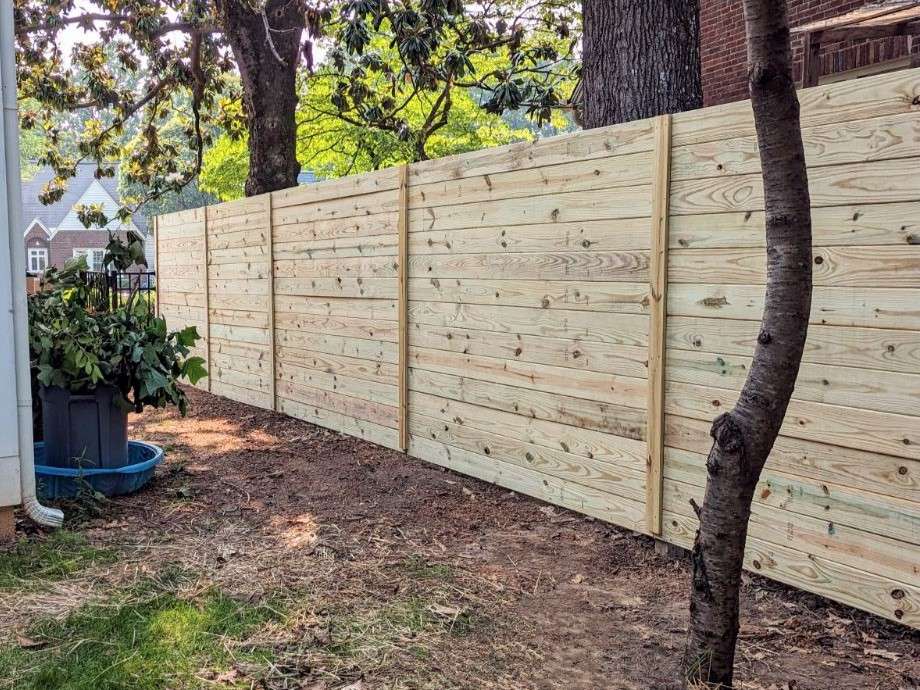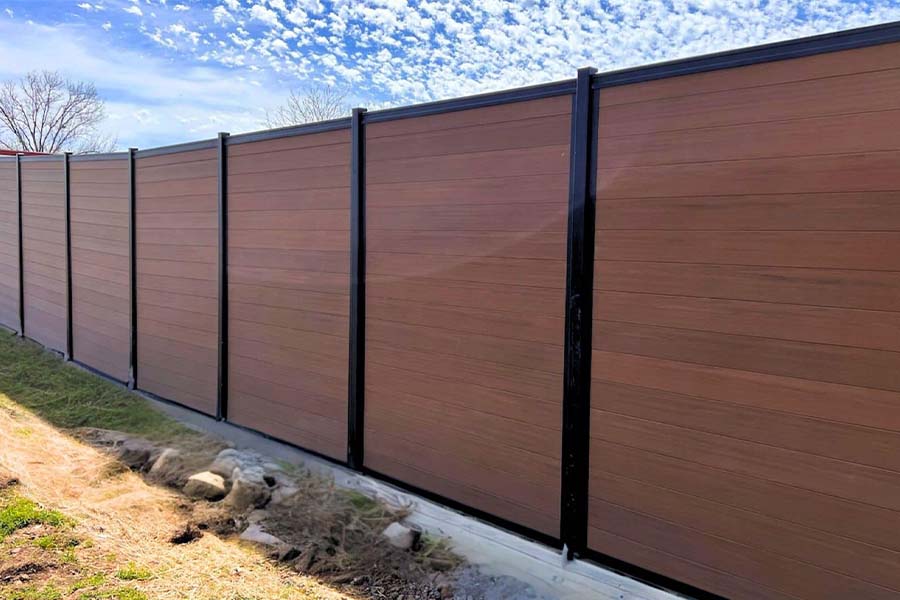All Categories
Featured

Just like any kind of outdoor structure, plastic fences still need regular cleansing to keep them looking pristine and to extend their life-span. Here are some of the finest methods for cleaning your plastic fencing.
- Regular Dusting and Sweeping. Regular treatment is vital to protect against particles from constructing up on your vinyl fence. The easiest method to maintain your fencing is by frequently dusting or brushing up off any kind of dirt, leaves, or various other particles that gather.
- Moderate Soap and Water for Routine Cleansing. For normal maintenance, a straightforward soap and water solution works wonders. It's an easy, reliable way to cleanse your plastic fencing without creating damage. Right here's just how to cleanse your plastic fence with soap and water:
Action 1: Mix a light detergent, such as meal soap, with cozy water in a container. Go for about 1/4 cup of soap for every gallon of water. Action 2: Dip a soft towel, sponge, or non-abrasive brush right into the option and gently scrub the surface of the fence. Take note of dirt accumulation on edges, edges, and low-lying locations where grime might gather. Action 3: After cleansing the surface, rinse it extensively with a yard hose pipe to eliminate all soap deposit. This approach is great for light dirt and crud and can be done every couple of months to preserve the look of your fencing.
- Make Use Of a Power Washer for Stubborn Stains. If you have actually ignored your vinyl fencing for a while, or if it has built-up gunk, mold, or mildew, a power washing machine can be an efficient tool for deep cleaning. You need to make use of the right pressure to avoid harming the plastic. Right here's just how to safely power clean your vinyl fence:

Step 1: Set the power washing machine to a low-pressure setting, ideally around 1,500-2,000 psi. High pressure can harm the plastic surface area or trigger it to fracture. Action 2: Stand a minimum of 2 feet away from the fence and begin splashing from the top down. This assists stop touches and makes sure that dust is washed off effectively. Action 3: Relocate the power washer nozzle in a side-to-side sweeping activity, and make certain to keep the water stress constant. Step 4: Wash the entire fence completely with water to eliminate dust and cleaning agent deposit. Power washing is an excellent option for huge fencings or for those with consistent dirt and discolorations that soap and water can't eliminate.
- Getting Rid Of Mold and Mold. In damp or shaded areas, mold and mold are usual troubles for plastic fences. To combat this, you can use a remedy of vinegar or bleach to decontaminate and eliminate the development. Below's just how to treat mold and mold on your fence:

Step 1: Mix one mug of white vinegar with a gallon of cozy water. Conversely, mix 1/4 mug of bleach with a gallon of water. Action 2: Apply the service to the influenced areas utilizing a soft cloth or sponge. Allow it sit for concerning 10-15 mins. Action 3: Scrub the areas with a non-abrasive brush to raise the mold and mildew or mold off the surface. Tip 4: Wash extensively to remove any cleaning service and debris. If you choose to make use of bleach, be careful not to splash it on nearby plants or materials, as it may cause damage or discoloration.
- Plastic Fencing Cleansers for Challenging Stains. For difficult, stubborn stains like tar, oil, or pen deposit, you can utilize a specialized plastic fence cleaner. These items are developed to safely clean vinyl without causing damage. Make certain to comply with the product's instructions for finest results, and test it on a tiny, unnoticeable location of the fence initially.
- Protecting Against Future Dirt and Spots. While cleaning is necessary, protecting against future stains and buildup can make your upkeep regular a lot easier. Consider these suggestions for long-term upkeep:
Trim plants: Thick plants, creeping plants, or shrubs can trap wetness against your vinyl fence, leading to mold development. Trim nearby plants to ensure the fence remains tidy and completely dry. Seal voids and cracks: Check your fencing regularly for fractures or gaps, and seal any that you find to maintain dust and water from getting in the fencing structure. Mount a protective coating: Some house owners use vinyl-safe protective coatings to their fences. These coverings can work as a barrier versus dust, UV rays, and water, reducing the frequency of deep cleaning required. 7. Specialist Cleaning. If you're uncertain regarding cleansing your fence on your own, or if it needs a deep clean, consider hiring a specialist. Lots of cleaning business supply fence cleaning company and have the equipment and experience to tackle challenging stains without harming your fence. They can additionally handle high or huge fences that may be challenging to clean by yourself.
Final thought. Vinyl fencings are low-maintenance, however they still require regular like keep them looking their finest. By utilizing light soap and water for routine cleansing, using a power washer for stubborn dirt, and dealing with mold or mold quickly, you can ensure your vinyl fence remains pristine. Regular cleansing, along with safety nets, will certainly lengthen the life of your fence and keep it improving the elegance and protection of your residential property for many years to come.
Latest Posts
Searching for Auto Repair in St. Louis? Visit Car-X St. Louis for Expert Solutions
Published May 12, 25
1 min read
Full Circle Strategic Marketing's Expertise Throughout Diverse Industries
Published May 12, 25
2 min read
Discover Your Vision Correction Journey Close By – Eye Center South Specialists
Published May 12, 25
1 min read
More
Latest Posts
Searching for Auto Repair in St. Louis? Visit Car-X St. Louis for Expert Solutions
Published May 12, 25
1 min read
Full Circle Strategic Marketing's Expertise Throughout Diverse Industries
Published May 12, 25
2 min read
Discover Your Vision Correction Journey Close By – Eye Center South Specialists
Published May 12, 25
1 min read